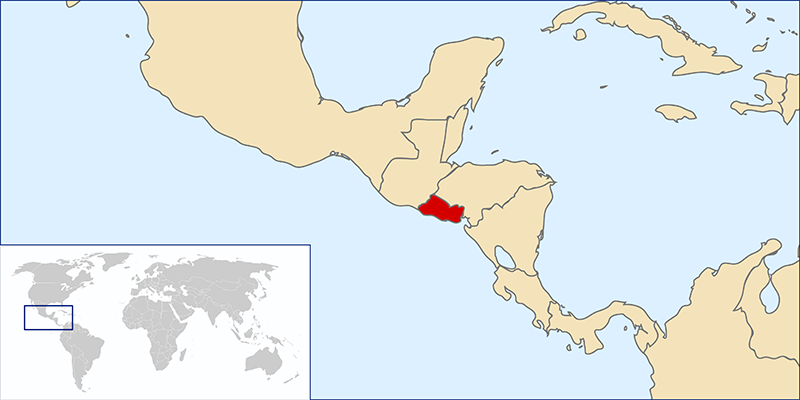
- Population:
- 6,338,000
- Religion:
- Christianity
El Salvador was inhabited by indigenous groups such as the Pipil before Spanish colonization in the 16th century. It became independent from Spain in 1821 and later from the Federal Republic of Central America. The 20th century saw political instability and a brutal civil war (1980–1992). Since the peace accords, El Salvador has focused on economic growth but continues to face challenges like gang violence and poverty.
El Salvador, officially the Republic of El Salvador, is the smallest and most densely populated country in Central America. It is bordered by Honduras to the northeast, Guatemala to the northwest, and the Pacific Ocean to the south. Covering an area of approximately 21,041 square kilometers, El Salvador has a population of about 6.5 million people as of 2023. The capital and largest city is San Salvador. The official language is Spanish. El Salvador operates as a unitary presidential republic. The economy is primarily based on services, industry, and agriculture, with significant exports of coffee, sugar, and textiles. The country has faced challenges such as political instability and natural disasters but has made progress in economic reforms and reducing poverty. El Salvador is a member of the United Nations, the Organization of American States, and the Central American Integration System.






